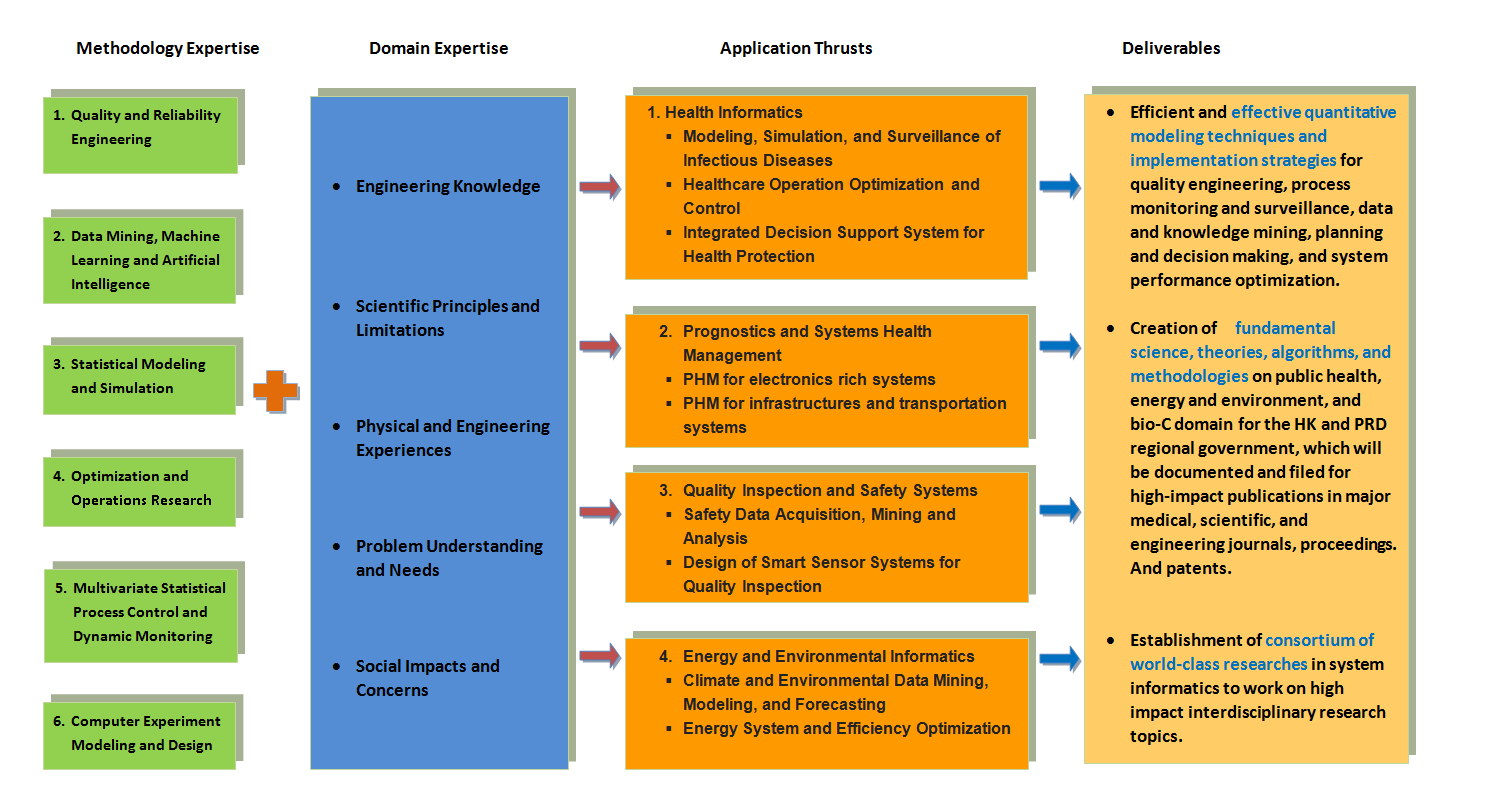

Current methods for reliability assessment have fundamental flaws, due to their inability to keep pace with new technologies. Prognostics and system health management (PHM) approaches have proven to be successful, effective and efficient in electronics-rich systems applications, providing solutions for product health assessment, fault diagnostics and prognostics (i.e. the real-time prediction of reliability and remaining useful life). However, an effective real-time monitoring, diagnostics and prognostics system is still unavailable in many application areas, such as infrastructures and automotive systems, rotation motors, bearings, batteries etc. PHM technologies for completely different application domains in infrastructures and transportation systems are now under investigation. Specifically, we focus on applications and develop:
From the past success of our CRF project, PHM has been regarded as a key enabler for achieving product reliability/quality, maintainability, testability, safety, and economical affordability. Companies worldwide such as SAE Magnetics Ltd and the China Electronic Product Reliability and Environmental Testing Research Institute (CEPREI) in Guangzhou have been heavily investing in PHM technologies to stay ahead of the global competition.

Hong Kong Government has provided a variety of social services and benefits to elders, including Community Care and Support Services, Residential Care Services etc. Home-care after early discharge from the hospital has become popular due to Hong Kong's densely-settled and aging population. Clinical care and social services for the elderly should ensure the provision of quality and efficient services. This research aims to employ healthcare systems engineering and stochastic modeling approaches to model the healthcare operation process, in particular for eldercare operations. Sophisticated data mining, operations research, and decision support systems as well as statistical modeling methods are some of the enabling methodologies to be customized to the specific needs of healthcare internal operations. Statistical distribution patterns will be characterized by extensive review of retrospective records and crosschecked with clinical process flow and observational study. The proposed methods will allow hospital management and healthcare professionals to understand capacity, capability, and utilization of the facility, identify bottleneck and critical processes in operation, better manage and optimize the efficiency and performance of eldercare.

The outbreaks of SARS and swine flu have exposed the need for early outbreak detection and effective disease-spread simulation analysis for health resource management under pandemic outbreaks. Current surveillance systems lack the ability to interrogate disparate data and diverse datasets and sources, and are inaccurate in predicting infectious disease outbreaks and spread trends. This research will develop a radically new "syndromic surveillance" approach to enable reliable data-oriented infectious disease forecasting, simulation, and risk analysis. Our main focus includes:

Nowadays, decision support systems are widely adopted in some managerial areas as well as healthcare decision making. Self-assessment is a comprehensive, systematic review of an organization's activities referenced against models of business excellence. From users' points of view, self-assessment provides a less formal but methodical means to regularly evaluate their topic areas of interest and enable decision making with systematic and quantitative approaches. Some management systems, which have a wider application, are able to conduct inter-company comparisons and suggest good management practices. Some reference quality award schemes such as the Malcolm Baldrige National Quality Award (MBNQA) and the European Foundation for Quality Management (EFQM) have been used as a foundation of various management systems. We have strong experience in developing decision support / management systems, such as in the areas of: